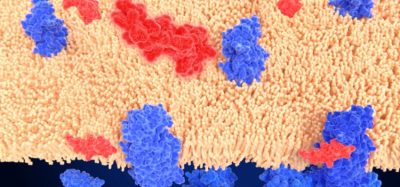Increased heparin dose reduces need for life support in hospitalised COVID-19 patients
Posted: 25 January 2021 | Hannah Balfour (European Pharmaceutical Review) | No comments yet
Interim data from 1,000 hospitalised patients with moderate COVID-19 symptoms shows that full doses of heparin can improve patient outcomes and could reduce ICU burden.
![Vial labelled heparin. [Credit: SamaraHeisz5 / Shutterstock.com].](https://www.europeanpharmaceuticalreview.com/wp-content/uploads/Heparin-750x500.jpg)
![Vial labelled heparin. [Credit: SamaraHeisz5 / Shutterstock.com].](https://www.europeanpharmaceuticalreview.com/wp-content/uploads/Heparin-750x500.jpg)
[Credit: SamaraHeisz5 / Shutterstock.com].
Giving hospitalised COVID-19 patients with moderate symptoms a full dose of heparin, a blood thinner that acts as an anti-coagulant, was found to reduce the requirement of vital organ support in a large clinical trial conducted worldwide. The investigators also found evidence of a possible reduction of mortality with heparin, which is being studied further.
The US National Institutes of Health (NIH) said, with large numbers of COVID-19 patients requiring hospitalisation, these outcomes could help reduce the burden on intensive care units (ICUs) around the world.
In the early stages of the pandemic, it was reported that COVID-19 patients had increased rates of blood clots and inflammation. This was found to affect multiple organs and cause complications ranging from respiratory distress and organ failure to heart attack and stroke. However, it was unknown whether providing hospitalised COVID-19 patients with increased doses of anti-coagulant treatments, like heparin, that are routinely given to hospitalised patients at low doses would be safe and effective.
To assess this, three clinical trial platforms, spanning four continents and more than 300 hospitals, have been working together to test whether there is a greater benefit of full doses of heparin to treat moderately ill hospitalised adults with COVID-19 compared to the lower heparin dose typically administered to prevent blood clots in hospitalised patients. Moderately ill patients are those that do not require organ support (eg, ventilation) and are not in intensive care at trial enrolment.
Based on the interim results, including data from more than 1,000 patients, the investigators suggest that full doses of blood thinners, in addition to being safe, were superior to the doses normally given to prevent blood clots in hospitalised patients. The trial investigators are now working to make the full results of the study available so clinicians can make informed decisions about treating their patients.
The trials are overseen by independent boards that routinely review the data and based on deliberations by these oversight boards, all the trial sites have stopped enrolment.
The three international trials were:
- the Randomized, Embedded, Multi-factorial Adaptive Platform Trial for Community-Acquired Pneumonia (REMAP-CAP) Therapeutic Anticoagulation;
- Accelerating COVID-19 Therapeutic Interventions and Vaccines-4 (ACTIV-4) Antithrombotics Inpatient; and
- Antithrombotic Therapy to Ameliorate Complications of COVID-19 (ATTACC).
Related topics
Related organisations
Related drugs
Related diseases & conditions
Acute Respiratory Distress Syndrome (ARDS), Coronavirus, Covid-19, Heart attack, Stroke









